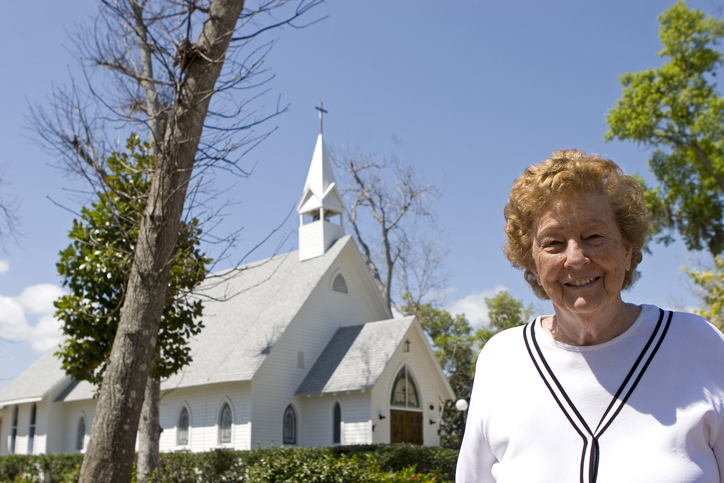
Rev. Bruce G. Epperly, PhD
In their “retirement” years, many pastors return to congregational ministries as interim ministers, supply preachers, pastoral caregivers, or bridge or sabbatical replacements. Some do so for financial reasons: to supplement their pensions and Social Security or to have extra money for travel or home improvement. Others return to ministerial settings because they simply enjoy doing ministry or, in the case of some short-term or interim or bridge positions, to spend several months in a place of beauty or excitement.
I recently took on a half-time Bridge Ministry at a UCC church in the Washington DC suburbs that was in need of a Sunday preacher, head of staff, and pastoral caregiver. A bridge minister serves as an “in-between” pastor, usually in the period after a settled pastor leaves their congregation and an interim or designated term pastor begins their ministry or in the case of an unexpected crisis involving a congregation’s pastor. Because I didn’t want to work more than twenty to twenty-five hours weekly, my wife Kate, a retired UCC pastor, was asked to be a minister of pastoral care.
While not all ministerial experiences are uniform in a sense of vocation, joy, or locale, both my wife and I have found our bridge ministries joyful. Committed to a defined period – in my case, three months or until a designated term pastor was secured – I could delight in preparing sermons and worship services, supervising staff, and getting to know the congregation’s leaders. My wife also negotiated a well-defined covenant with the church leadership that limited her commitment to no more than ten hours a week apart from significant pastoral emergencies.
I must say that we both flourished. My wife renewed her love for pastoral care and spiritual friendship and had the opportunity to initiate a holistic spiritual growth group for members facing health challenges. I had the opportunity to preach a dozen theologically sound and spiritually rich sermons, all of which I wrote with an eye to this particular congregation. While I have hundreds of sermons saved on my computer or in the cloud, I wanted to provide a fresh word for the congregation in need of a new vision for just such a time as this. I wanted to set the table for their designated term pastor in terms of quality of worship and staffing.
The bridge ministry not only exercised my “little gray cells,” to quote Hercule Poirot, it also gave me new insights for writing projects and energized me throughout the day. The work was just enough – about ten hours a week in my church study, some work at home on sermons and liturgies, and leadership on Sunday mornings – to be invigorating without being tiring. My wife says the same thing about her pastoral care ministry. We lived out our ministerial vocation in ways that met the congregation’s needs, without wearing ourselves out or sacrificing recreational or family activities.
I suspect that many of my readers have dipped their toes back into ministry after time away. There is joy in using the gifts you have cultivated over decades and making a difference in the well-being of a congregation. There is also a pastoral ease inherent in sabbatical and bridge ministries that comes with the awareness that you don’t have to solve all the congregation’s problems and that your primary role is to move the congregation forward in small ways, knowing that the settled pastor or your successor will take on the bigger issues. You share your gifts as a preacher and pastor without significant administrative demands.
I suspect that after a few months of short-term or interim ministry, most pastors want a break. The opportunity to return to the pews or go to the beach or spend time with family on Sunday mornings beckons. Yet, perhaps, like myself, they will also consider saying “yes” to another short-term ministry possibility if their gifts meet the needs of a congregation and if it fits into your personal schedule and other activities.
Ministry is one of the few professions in which you may be more competent at seventy than fifty. You may discover that a little detachment – a sense of freedom – enables you to be more effective as a pastor, who – as the saying goes – simply preaches the Gospel and loves the people. In the era of the “great resignation” in ministry, your gifts may truly meet the needs of a congregation and in the process, you may be surprised by the joy of using your talents to serve God and grow the Christian community.
Bruce Epperly is a "retired" UCC and Disciples of Christ pastor, seminary professor and administrator, and author of over seventy books in theology, spirituality, health and healing, scripture, and ministerial spirituality and wellbeing, including “The Jubilee Years: Embracing Clergy Retirement,” “101 Soul Seeds for Grandparents Working for a Better World,” and “101 Soul Seeds for a Joyful Retirement.” His latest books are “Jesus: Mystic, Healer, and Prophet”; “Taking a Walk with Whitehead: Meditations on Process Theology”; “The Elephant is Running: Process and Relational Theologies and Religious Pluralism.” In July 2021, he was Senior Pastor of South Congregational Church, United Church of Christ, Centerville, MA and returned to the DC area where he lives in Potomac, MD, and spends his days writing, teaching, walking, and spending time with his middle school grandchildren. He may be reached at [email protected].
